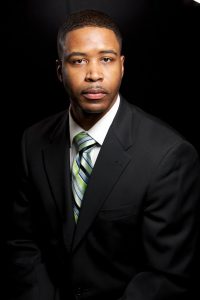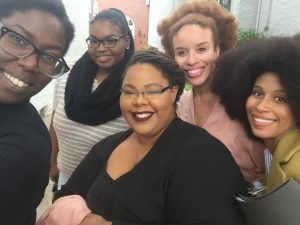There’s a famous line from the movie Field of Dreams: “If you build it, they will come.” I don’t have a succinct parallel for this quote, but I think it’s safe to say that if you build it and they come at 9 o’clock in the morning, you’ve got something good. We greeted a slightly larger group yesterday morning, joined this

time by our swing bass, Mary Fields, a small handful of newcomers from the Frederick community, and our chorus director for this program, Charles Parris. Charles, a retired bassist from the United States Soldiers Chorus, joined us as a participant and as a leader for the “musical conversation” we are creating as the context for our journey and we’re delighted to have him.
While we can’t say that 9 o’clock in the morning is our absolute favorite time of the day to perform, singing barbershop makes any part of the day a little brighter. Especially when we feel connected to the message we’re sharing. Since last year when we performed “If You Had All the World and Its Gold” at Area 2, we’ve continued to grow into appreciating the song’s message about life’s greatest gifts. It felt like the perfect song to lift us all up together to launch into our session’s work.
After opening the morning in song as the quartet, we joined forces with the whole group to practice the tag to our group chart, “We Shall Overcome,” arranged by David Wright. For a crowd that included a few who claim to be “musically challenged,” the harmony of our voices was really quite beautiful. Charles’ confident directing, I believe, also lent an influence to our singing as an ensemble– which even he expressed inspired him with pleasant surprise. This element of surprise from newbies to the barbershop experience is part of what we truly love about it– no matter how strong or inexperienced the individuals may be as musicians and singers, the whole is always greater than the sum of its parts. In more ways than one.
So, onto the #RealTalk: in our first session, we explored the elements that have shaped our identities and the lenses for our worldviews. Now it was time to dive into approaching this part of the world and our issues with race from more of a birds eye view. Participants read Ta Nahesi Coates’ article in The Atlantic, “The Case for Reparations.” Considering our respective vantage points, for some it was eye-opening to have a chronology of facts concerning the systemic influences that have perpetuated racism in the United States from the 1600’s to the present day. For others, it was a review of the fundamentals of daily reality. Through our shared discourse, we were able to hold space tension of harbored trauma and of shock among those who had lived this narrative and who had only just discovered it through this article. Other tensions, which came to be known well after the conclusion of the session, also emerged– which we’ll explore further next week.
Reading Coates’ work, confronted with this tension, the question emerged: Overcome what? And who is “we?” Recognizing our personal and shared reactions, it resonated with us as one member offered this fitting response– that we, together, as American citizens, must overcome the shackles of our trauma and the untruths we may have believed if we are to move forward together. If we can ever hope to repair and restore, we must be willing to examine the damages, and explore what can be rectified and by what means.
Another participant expressed the healing experience in having others progress from holding the space to explicitly acknowledging the truth of America’s crimes against people of color. And we as barbershop singers can recognize the parallel. We join our voices in song, providing the balance necessary to support each singer in telling the story, without literally wearing our voices out. We thus recognize that to give voice to America’s ugly truth can be exhausting on one’s own– even re-traumatizing. To keep those voices from tiring out, it is essential that we share the responsibility in the telling. And the general consensus here was unquestionably that increased self-education and a shared vocabulary was essential to knowing the whole story and telling the whole truth. Join us next week as we continue to lean into the perceived dissonance of our perspectives, we will reflect on our values, convictions, and personal tendencies in attempt to better attune our responses to one another that they might become aligned.
